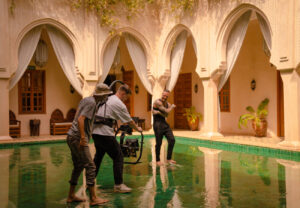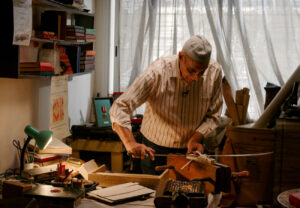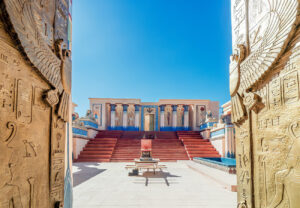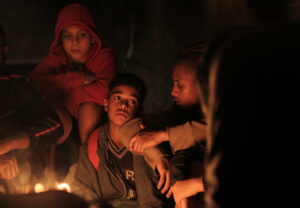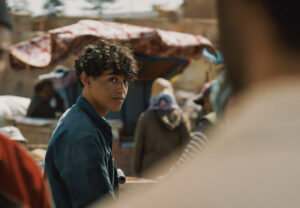Children in Film Productions in Morocco
A Practical Guide for Foreign Producers
1. Introduction
Filming with children in Morocco presents both opportunities and responsibilities. Young actors bring energy, realism, and charm to any production, but their participation is carefully regulated to protect their well-being. For international producers, navigating these rules can be challenging, as Morocco’s framework for minors is specific and not always widely known.
This guide offers a practical overview of the procedures, approvals, and age-related considerations for working with children in Moroccan film and television. It is designed to help foreign productions operate smoothly, respecting local laws while creating a safe and supportive environment for young talent.
2. The Legal Foundations
At the heart of Moroccan law lies the Labor Code (Law 65-99, 2003). It establishes a minimum working age of 15, but makes a special exception for cultural and artistic activities. Under Article 145, no minor under 18 may appear in a film, television program, or public performance without prior written authorization from the labor inspector, issued after consultation with the child’s parent or guardian. This authorization can be revoked at any time at the inspector’s discretion if circumstances warrant.
The law also forbids minors from performing any acts that could endanger their health, safety, or morals. It explicitly prohibits employing children under 16 in acrobatic or circus acts and other potentially hazardous performances. That means dangerous stunts or psychologically disturbing content are strictly off-limits for young performers.
A frequent question is which labor inspector should grant the authorization. The code is silent on this, but practice has established a pattern: the authorization is usually obtained from the inspectorate of the child’s home province, since that office is responsible for the minor’s welfare and for verifying parental consent. However, the inspectorate of the shooting location may also expect to see the paperwork, especially if they send inspectors to set. To avoid complications, productions often coordinate with both inspectorates – obtaining the permit through the home province while ensuring the labor office at the filming location is informed.
When the Child Is Foreign
If the actor is a non-Moroccan minor, the same labor code rules apply — there is no exemption based on nationality. In this case, the written authorization is normally issued by the labor inspectorate of the shooting location, since the child has no Moroccan domicile or “home” labor office.
Additional layers apply in practice:
Immigration: the child must enter Morocco with the proper visa or work authorization, arranged through the local production partner under the CCM filming permit.
Parental presence: inspectors almost always require written consent from the parents, and in practice expect a parent to accompany the child to Morocco.
Education: if the child is still subject to compulsory schooling in their home country, productions often arrange tutoring or provide proof that school authorities approve the temporary absence.
Insurance: the production’s local insurance policy must cover the child while in Morocco, regardless of any foreign coverage.
Although not required under Moroccan law, productions sometimes provide supporting documents (such as proof of guardianship or confirmation from the home country) to reassure inspectors and avoid potential delays.
3. What Changes with Age
The process of securing authorization is essentially the same whether a child is six or seventeen. What changes in practice is how much flexibility inspectors allow, and this ultimately remains at the discretion of the labor inspector.
At six years old → participation is only possible under exceptional conditions. Hours are kept very short, roles must be entirely safe and age-appropriate, and a parent is expected to be present throughout. Education cannot be disrupted.
At twelve → still well below the standard working age, but inspectors may allow somewhat longer hours — provided schooling is respected and the scenes are suitable. A guardian’s written consent remains essential, and their presence on set is strongly advised.
At sixteen → above Morocco’s minimum work age, but not yet an adult. With parental consent and inspector approval, longer days and more demanding roles may be allowed, though inspectors still restrict anything hazardous. Parents may no longer need to be on set constantly, but their legal responsibility continues.
At seventeen → inspectors generally grant permission readily, treating the teenager almost as an adult, though parental consent remains required until age 18.
In all cases, the labor inspector’s authorization is the decisive legal instrument. Productions that skip this step risk fines and, more importantly, having a shoot stopped mid-production.
4. A Note on Provincial Authorities
Foreign producers sometimes hear that provincial governors (“walis”) must also approve children’s participation. For film and television shoots, this is not the case: the Labor Code gives authority solely to the labor inspector, and no additional governor’s approval is required.
For live performances and public shows (“spectacles publics”), however, Moroccan law does require the event itself to be authorized by the local wilaya or commune. This authorization concerns the staging of the show as a public event. If minors are involved, productions must secure both the event authorization for the performance and the labor inspector’s authorization for each child performer.
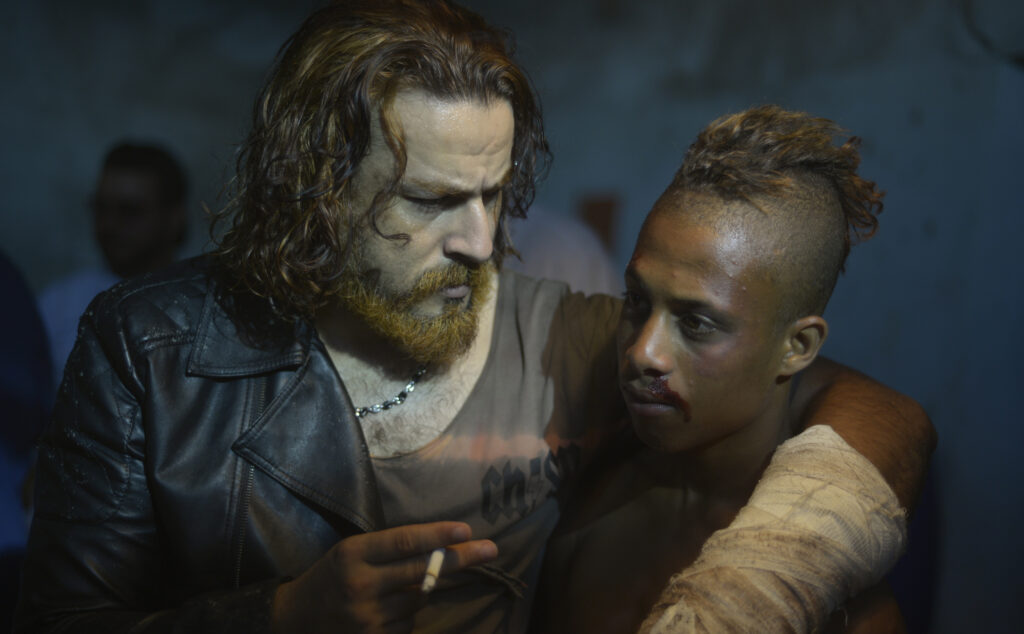
5. Minors in Live Performances
The same labor code rules apply when minors participate in live performances – such as theater productions, concerts, or other public shows – since the law’s reference to “spectacles publics” covers these scenarios. In other words, a child appearing on stage in Morocco must have prior authorization from a labor inspector (with parental approval), just as they would for a film or TV shoot.
At the same time, the performance itself must be cleared with the wilaya or local authority under Morocco’s event regulations. This is separate from the child’s authorization: the labor inspector approves the minor’s participation, while the wilaya authorizes the public event as a whole.
The nationality of the child does not change these requirements. Moroccan minors usually obtain authorization through their home-province inspectorate (with the local inspector aware of the engagement), while foreign minors require authorization from the inspectorate where the show takes place. In both cases, best practice mirrors film production: ensure visas or work papers are in order, obtain parental consent, maintain a parent or guardian’s presence (especially for younger kids), safeguard education, and provide full insurance coverage.
Failing to secure the labor inspector’s approval for a minor in a live performance carries the same risks as in film — authorities could halt the show and impose penalties — so both permits should be treated as essential.
6. How Productions Typically Proceed
A foreign production working with minors in Morocco will normally begin by securing the CCM filming permit through its local partner. In parallel, the partner applies to the labor inspectorate for each child actor, submitting parental consent letters, ID copies, and a description of the role and schedule.
For school-age children, inspectors may ask how education will be preserved, so producers often plan shoots for weekends or holidays. Once permits are issued, the production team ensures that all approvals are available on set in case of inspection.
On set, parents or guardians are usually present for younger children, and even with teenagers, productions are careful to provide rest breaks, meals, and safe working conditions. These are not just legal obligations but industry norms in Morocco, shaped by years of hosting international shoots.
7. Conclusion
Morocco’s regulations for child performers are clear once familiar: the essential requirement is always the labor inspector’s authorization, together with parental consent, for anyone under 18.
Film and television → the production must secure a CCM permit, plus authorization from the labor inspector for each child.
Live performances or public shows → the event itself needs approval from the wilaya or commune, in addition to the labor inspector’s consent for every minor involved.
Foreign children follow the same rules, though the inspectorate at the filming or performance location handles approvals, alongside extra considerations such as visas, parental presence, and insurance coverage.
By following these procedures, international productions can confidently involve Moroccan or foreign minors while ensuring legal compliance and a safe, supportive environment for young talent.

Disclaimer: This guide is provided for informational purposes only. It does not constitute legal advice. Producers should always confirm current requirements with local legal counsel and their Moroccan production partner before engaging minors in any production or live performance.

